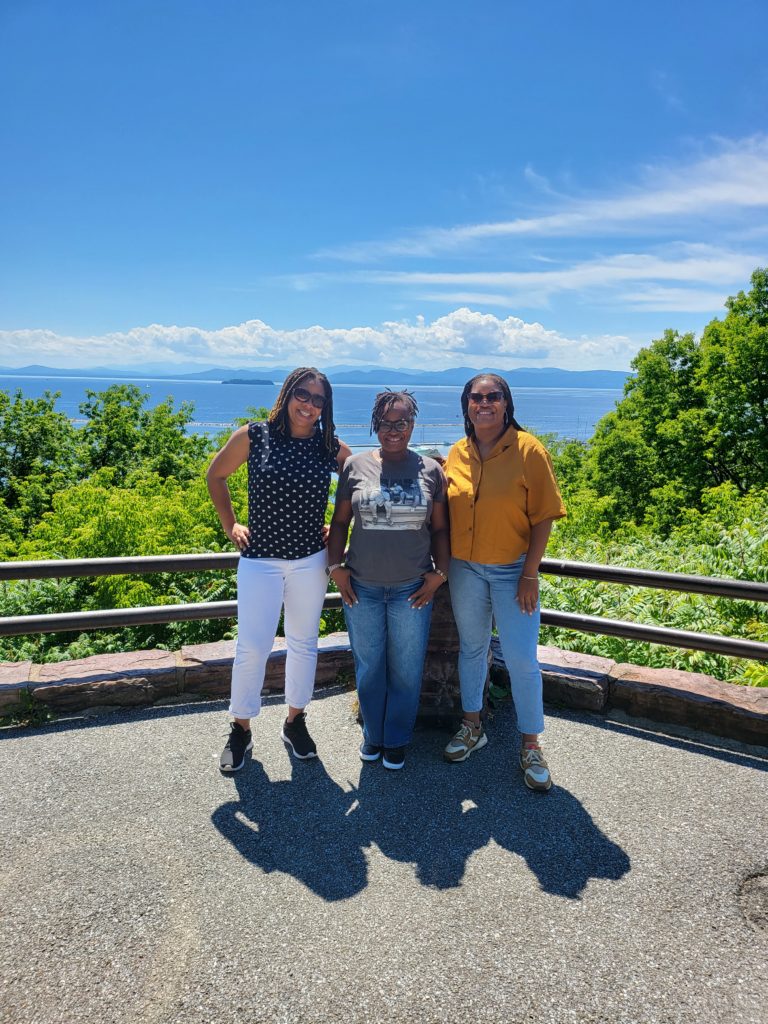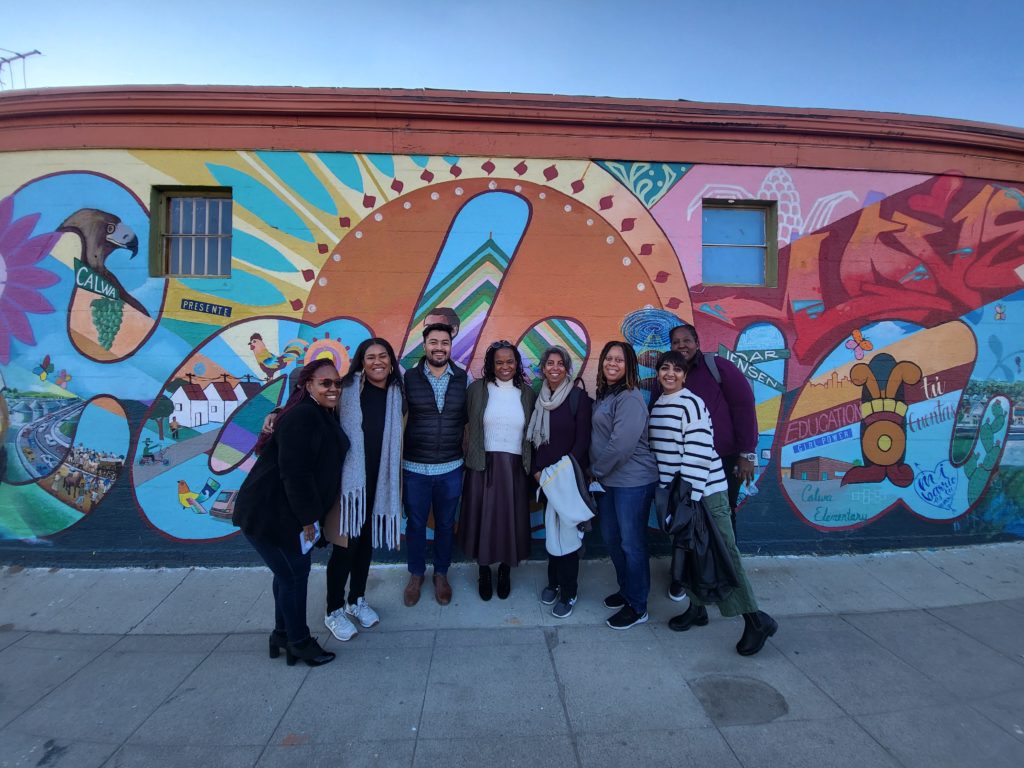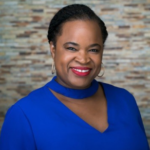BY Katrina Julien, Senior Program Officer at the Community Foundation for Greater Atlanta, and 2022 PLACES Fellow
For The Funders Network, PLACES stands for Professionals Learning About Community, Equity and Sustainability. This is something that all alumni know by the end of the program, as we are encouraged to embody those ideals and be able to introduce them and our cohort at any given moment. Like me, I’m sure that most decide to apply for PLACES as a strategy to strengthen their leadership role and progress in their philanthropic careers. But those who’ve gone through the program know that this is more than just another bullet on your resume — it’s an opportunity to connect what you do with who you are. It’s also a chance to see opportunities in difficult situations, and to envision a world where using philanthropy as a tool no longer does as much harm as it does good.
PLACES is both a professional and personal journey.

Our first meeting was virtual but still dynamic. We learned a little about each other and broke out into groups to begin to connect with our peers and prepare to head to our first site visit destination, Burlington, Vt.. In Burlington, the PLACES team wasted no time getting us talking about ourselves, our work, and how overwhelming it can be working in a sector that upholds white supremacy culture all while trying to dismantle it from the inside. We heard from foundations at all different stages of embedding equity into their work.
Personally, I got to hear what I must’ve sounded like when I started in the community foundation, speaking about equity but knowing it hadn’t yet been operationalized within my organization. It was hard to watch but incredibly informative. The nonprofit partners were doing some incredible work and creating more diverse spaces — even though it was hard. Though it seemed unbalanced, what I came away with is the realization that to achieve the goals we strive for, philanthropy needs to listen and learn from the examples that community and nonprofit partners present.
When I returned to work, I grappled with these questions: What is the role of philanthropy in dismantling broken systems? Do we work in institutions that are ready to do that? What is my responsibility to ensure equity in my work? The great thing about PLACES is that you work through all your uncertainties with your peers. Your cohort and the PLACES team ensure that you don’t hide from difficult issues and give you the space to unpack them on your own time. By the second site visit in Oklahoma City, fellows were ready to dig into some of those uncertainties.
The Oklahoma City site visit challenged me. There, we heard OKC history as told by a person whose life’s work was to record the history of Oklahoma, but whose unconscious biases were apparent in every historical fact discussed. We also heard from a PLACES alum who was doing amazing work in philanthropy, yet he introduced the idea of strategic complicity — choosing which battles are worth fighting and which you concede to do the greatest amount of good. As a person who was born to challenge everything, this concept was and is the hardest for me to accept. Yes, I understood it, but I didn’t like it. The good thing is that the PLACES team knew when to push and when to offer respite. And we spent just as much time learning and acknowledging each other as we did learning about the issues and challenges of the city. We also made sure to see and interact with each city and its history, from the somber reflections at the OKC Memorial to the richness of Burlington’s Intervale Center.
Fresno, Calif., had its unique challenges that philanthropic, nonprofit, and community organizations were working through. Our last site visit in Fresno solidified the idea that no matter the place, no matter the issue (housing, access to water, food insecurity, health and wellness, etc.) the real work is dismantling the power structures that oppress communities. Oppression may look one way in Burlington and another way in Fresno, but the underlying issue is the same: a gross imbalance of power and privilege heavily steeped in racial inequities, and the necessity of returning that power and autonomy to the people and communities that have been disenfranchised to make decisions for their lives.

At the end of this journey, I don’t think I’ve found the answers to all my questions. Finding those answers may be a collective journey. Yet, I am so lucky to have my fellowship family to share it with, to commiserate with, to uplift and cheer on. The best leadership advice given in this program is, “find your people, the ones that have your back in this challenging work.” PLACES helps leaders in philanthropy connect with and identify who their people are and challenges us all to get to work.
About the Author
 Katrina Julien (she/hers) is a Senior Program Officer at the Community Foundation for Greater Atlanta. She is a member of the 2022 PLACES Fellowship cohort.
Katrina Julien (she/hers) is a Senior Program Officer at the Community Foundation for Greater Atlanta. She is a member of the 2022 PLACES Fellowship cohort.
